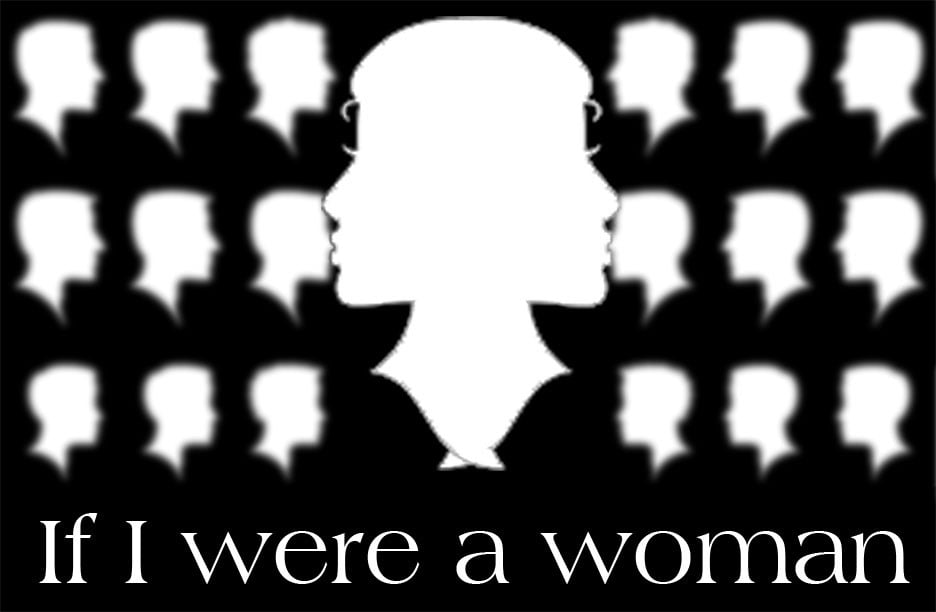
I have never wished to be a woman in Pakistan or elsewhere. Not even in my wildest dreams or nightmares

I grew up in a single parent household. Ammi divorced my father when my brothers and I were still toddlers. So, growing up in a house that was led by a strong woman was a different experience. In some ways, we all grew up to be un-manlike.
As a school-going child, I would hear other children talk about how amazing their fathers were and how could they do so many amazing things, like working and taking them to buy new stuff. Only Waqar (another classmate who grew up in a single parent household) and I would talk about how our mothers did a lot more: cook, clean, take care of us, and then take us to get stuff and go to work!
Yet, even at that time, it was emotionally distressing to see how our mothers were put in the special box of being some sort of an exception to the norm.
How does one deal with not being recognised? With the sense that whatever one is doing is not something one is expected to do? According to society, it is men who do the impressive, tough work. Women are expected to do other ‘less impressive’ things. But if they end up doing the impressive things anyway, then surely there could be nothing impressive about them because men do them all the time.
How does one answer a question that one hopes would never be asked? I have never wished to be a woman in Pakistan or elsewhere. Not even in my wildest dreams or nightmares.
I am going to be very honest about it. I can’t ever fully appreciate how difficult it is to be a woman, but I do sometimes wonder what it is like to be one in this country or, for that matter, in this world. Don’t stand too straight; slouch a little. Don’t run. Walk slowly. You are not supposed to run. Or walk too fast. Why do you think you can go out like this? Cover your chest. Move your dupatta down.
How does one figure out living with these instructions? What does it feel like to step out of the house and be ogled at by everyone? Why can’t men speak while looking straight into your eyes? Why do their eyes invariably move, especially move down? How does it feel to have your feelings, or the feelings you ought to have, explained to you by other people, mostly men? You are too emotional. Think rationally. Calm down.
How does it feel to live a life that is not based on a sense of entitlement? Or that one must earn one’s privilege or need to constantly justify it. That there is no reason to assume authority and power will automatically be yours even if you deserve it. That you must justify not being ambitious because ambition is a trait specific only to men and you must not be like them. All this because you are a woman. Something less than a man -- more incomplete and much less deserving. You are vulnerable all the time, not just physically but also emotionally and psychologically.
Read also: I.A. Rehman’s letter to the editor: “Which model of Pakistani womanhood do you want me to fit into?”
Why would I want to wish that "if I were a woman…" I would do this or that. As a man, life is much easier. I can assume authority. Self-entitlement is strong in me. I am usually praised as someone with initiative. It is okay for me to be ambitious because men have a ‘natural’ relationship to power. I am introduced first, even when I enter a room after my partner. Nobody thinks that is odd. My partner’s existence is only in relation to me because that is the ‘natural’ order of things.
But I think the worst thing about being a woman is that your body does not belong to you. It is both a sight to behold, because it must or ought to please others, and it is also a site of construction for men. Men have an ultimate say in how a woman must feel about her own body. Whether it is appropriate, thin, or fat, sexy or repulsive.
How does it feel to constantly look at yourself through someone else’s eyes? How does one look in the mirror and not see oneself but an image constructed by other people? How can one give up one’s self-esteem to other people around oneself? Powerlessness comes in all shapes and forms.
I don’t know the answers to the questions above. Perhaps I don’t even want to understand them. Even just writing about them makes me anxious. I don’t know what a life full of anxiety and constant guilt looks like. I have not lived it and I wish to God that no woman in this country or in this world ever have to live it.